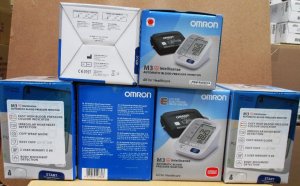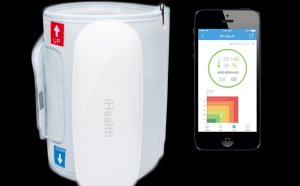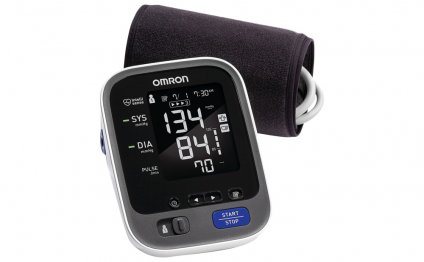
Omron Blood pressure Monitor accuracy
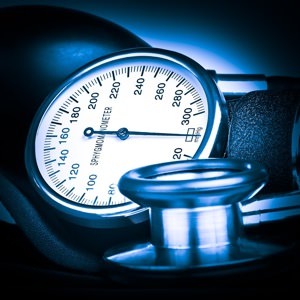 Visit a doctor’s office for almost anything that ails you and the chances are good you will have your blood pressure measured. That’s because it is an essential diagnostic procedure to detect hypertension, a common condition that puts people at risk of heart and kidney disease.
Visit a doctor’s office for almost anything that ails you and the chances are good you will have your blood pressure measured. That’s because it is an essential diagnostic procedure to detect hypertension, a common condition that puts people at risk of heart and kidney disease.
Considering that millions of people have their blood pressure checked every day, it is surprising that this measurement can be so tricky. Mistakes are far more common than most people realize, and the consequences of inaccuracies can be serious.
Falsely Positive Blood Pressure Readings:
A false positive, that is, a reading higher than the true blood pressure, could lead to unnecessary medication. Drugs can be expensive and may have unpleasant side effects such as dizziness, fatigue, impotence, cough or swollen feet.
Falsely Negative Blood Pressure Readings:
A false negative, a reading lower than the actual blood pressure, could lead to undertreatment. This puts people at risk of heart attacks, strokes or kidney disease.
Blood Pressure Cuff:
What causes such errors? According to experts writing in the Journal of Human Hypertension (July, 1997), a common source of error in measuring blood pressure is using the wrong size cuff. A cuff that is too small for a large arm can result in a blood pressure reading higher than it should be. When was the last time a nurse or doctor actually measured your arm circumference and then selected a blood pressure cuff that was designed for your sized arm? Most of the time you will be measured with the device that is handy.
Too Much Talking Going On:
Another potential problem is talking. Not infrequently a nurse or physician taking blood pressure will strike up a conversation, thinking that it may put the patient at ease. On the contrary, talking during blood pressure measurement can easily raise the reading 10 to 20 points.
When we first heard about this phenomenon we were skeptical. How could seemingly casual conversation affect blood pressure? Research by J.J. Lynch, however, has revealed that when someone talks while having her blood pressure measured can have a profound impact on the outcome. In some cases blood pressure can go far higher than 20 points and could result in a false diagnosis of hypertension.
Arm Position Is Important:
The official position of the American Heart Association is that the “Patient’s arm should be supported at heart level.” If your arm is allowed to hang down lower than heart level the reading is likely to be falsely elevated. If, for some odd reason, your arm is allowed to rest above heart level the reading could be falsely lowered.
You might think this fundamental recommendation from the AHA would always be followed. You would be wrong. It never fails to amaze us that most chairs in exam rooms do not have an arm rest at heart level. Unless the nurse or doctor actually supports your arm at the correct level while measuring your blood pressure, chances are good that your arm will be lower than appropriate and that will falsely elevate the reading.
Another problem that is rarely considered by health professionals is a cold examining room. If you are wearing one of those flimsy little paper gowns, feeling chilly and exposed may increase blood pressure more than 10 points.
White Coat Hypertension:
And speaking of uneasiness, “white coat hypertension” affects up to one patient in five. These are people whose blood pressure skyrockets when the doctor walks into the room. Some people with normal blood pressure may have office readings as high as 180/110.
Many doctors and nurses have a hard time accepting this concept. After all, how could their mere presence cause a patient’s blood pressure to spike? Health professionals like to think of themselves as kind, compassionate healers, not scary threats to a patient’s well being. Nevertheless, many people become very anxious the minute a doctor knocks on the exam room door.
Anyone who is susceptible to this phenomenon should be measuring blood pressure at home. There are affordable, easy-to-use digital machines that allow people to keep a diary of their readings over the course of several weeks or months. This permits the physician to get a broader understanding of their blood pressure in a variety of settings. The home machine should always be checked against the equipment in the doctor’s office to make sure it is accurate.
Anyone who would like additional details about proper blood pressure measurement, white coat hypertension and drugs used to treat high blood pressure may find our Guide to Blood Pressure helpful. It has a detailed list of dos and don’ts of measuring and managing blood pressure.
Here is a link to all our guides. And should you want to know some secrets about common mistakes in treating hypertension, check out our book, Best Choices From The People’s Pharmacy.
Measuring blood pressure is harder than it looks. Getting it right requires good technique and careful monitoring over time. This facilitates the best possible treatment for those who need it and protects others from unnecessary medication.
Share your own experience with blood pressure measurement below and please vote on this article at the top of the page.
RELATED VIDEO

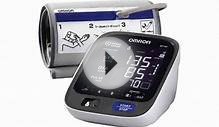
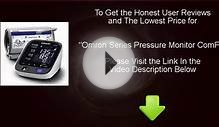
Share this Post
Related posts
Omron Upper Arm Blood pressure Monitor
Offering precision and comfort with our Easy-Wrap ComFit Cuff that fits standard and large Arms, the 7 Series Upper Arm Blood…
Read MoreMobile phone Blood pressure Monitor
About 70 years ago, Franklin Roosevelt died of essentially untreated hypertension, with years of exams describing a progression…
Read More
